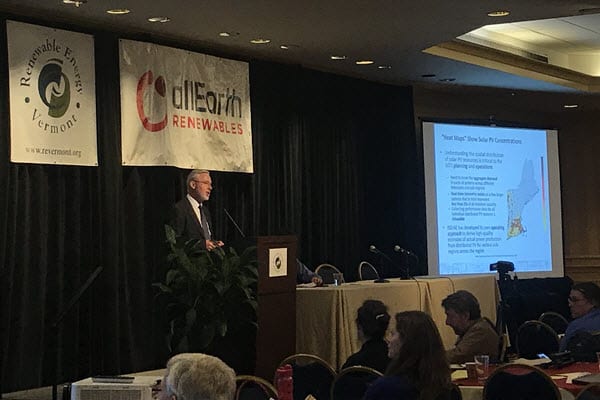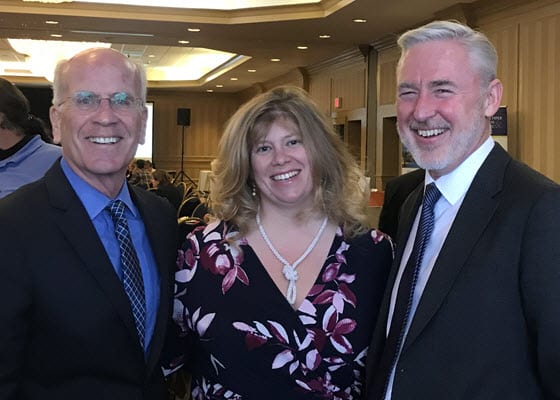ISO-NE CEO gets “revved” up over the hybrid grid at Renewable Energy Vermont (REV) conference in Burlington
The New England electric grid is evolving in two fundamental ways, according to ISO New England CEO Gordon van Welie. The grid is shifting from the use of fossil fuels to generate electricity to cleaner resources and from central power plants to distributed generation. This change is creating a massive and exciting engineering and market design challenge, van Welie said.
van Welie shared this observation, and many others, during a keynote address at the Renewable Energy Vermont (REV) conference in Burlington, Vermont, on October 18. During his address to approximately 500 people, van Welie discussed the journey that New England is on in terms of energy policy, and the role of the ISO in it.

Markets and Innovation
In the late 1990s, New England restructured its wholesale power industry in order to spur innovation, shift investment risk from consumers to private investors, and foster competition. Since then, policymakers have shifted their focus to decarbonizing their economies, focusing on the electric, transportation, and heating sectors. Throughout these changes, the ISO’s role has been, and will remain, the same: ensuring reliability through competitive markets.
The coming challenges will provide great opportunities for innovation and will require collaboration, van Welie said. He also described the ISO’s work to integrate distributed generation into the ISO’s markets, planning, and operational efforts, noting that ISO New England was the first RTO/ISO in the country to fully integrate demand response into the wholesale markets.
Transition and Challenges
This shift to a “hybrid grid” is occurring while the ISO is also working to address the challenges of maintaining a reliable electric system during prolonged cold, van Welie said. There are more than 30,000 megawatts (MW) of capacity installed on the New England electric system, but in winter it can be a struggle for the ISO to serve 22,000 MW of demand during extended cold weather. This is caused by a variety of factors, including the growing demand for natural gas to generate electricity without additional investment in the underlying fuel delivery infrastructure; efforts to curb emissions; and retirements of power plants with fuel stored on-site.

The ISO and stakeholders are undertaking design changes to adjust the wholesale market to address this risk, including how to address the winter energy security challenges.
Other speakers at the event included Katherine Hamilton, chair of 38 North Solutions and one of the hosts of the “Energy Gang” podcast; Congressman Peter Welch; Vermont Governor Phil Scott; and other elected officials and regulators from around New England.
- Categories
- Recent Publications & Events
- Tags
- energy adequacy, ISO leadership, renewable resources



